Australia, the land of dreams and the ‘Lucky Country’. Travelling around Australia as a non-tourist can have its own set of benefits. One of the most non-touristy things to do in Australia is get along with the locals. So let’s discuss something about travelling hassle-free, securely and intelligently. Here we present you with some tips to travel around Australia as a Non-tourist.
Below is a list of 24 best practices to follow in Australia. To do non-touristy things in Australia, you must know what a non-tourist in Australia is like. You need to understand how a
Best Non-touristy things to do in Australia
1. Travel Australia in Zones
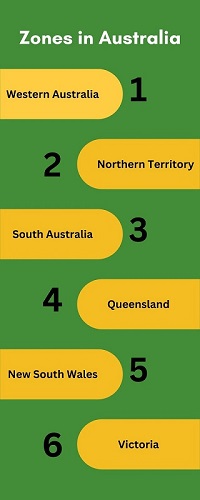
Australia is the 6th largest Country in the world. The whole continent is just one big country. Therefore, plan your trip wisely. Don’t rush in to explore the whole of Australia. As it will take a lot of time and energy. Instead, choose a zone and explore it.
It is best to plan beforehand which zone you wish to visit. It will bring clarity to your travel itinerary and add better experiences rather than just roaming around the continent.
2. Be ready for Seasonal shocks
You must have heard of cultural shocks. But Australia has some seasonal shocks as well.
Seasons in Australia
The seasons are quite the opposite from elsewhere. Summer falls between December to February and Winter falls between June to August.
March to May is the Autumn season. While September to November marks the Spring season.
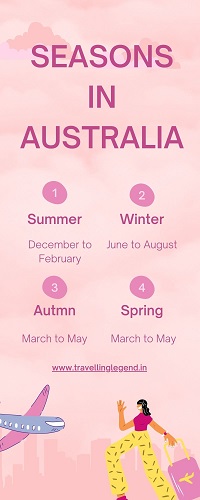
3. Avoid trying new eateries on Weekends
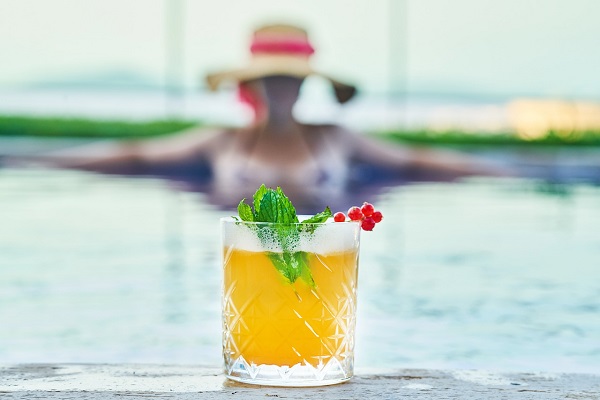
Restaurants charge more on Sundays and holidays. They can charge up to 10% – 15% more than the usual rates. One of the best non-touristy things to do in Australia is to try new eateries only on working days. On weekends you may go to budget cafes or restaurants.
4. Public transport is not the most reliable

Don’t rely on public transport. Public transportation is quite convenient in the big cities. But in small cities, you might need to rent or hire a car. For getting between cities a train is a good option.
5. Stay safe in the water
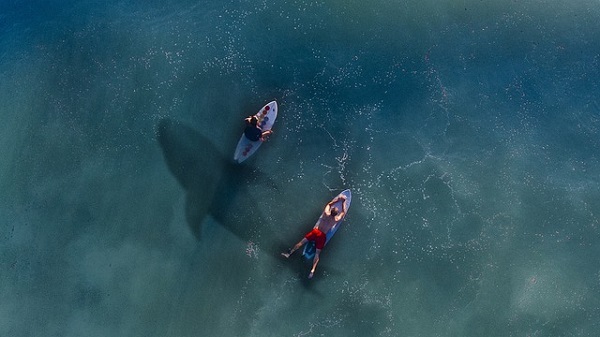
Be careful while swimming on the beaches of Australia. There are a lot of jellyfish, sharks and other animals trying to kill you. So stay behind the flag mark. Or you can choose a netted beach for extra safety.
The most important non-touristy thing that you must do in Australia is to know the Australian beaches. Beaches are a great place for fun and entertainment. But Australian beaches can be dangerous too.
6. Trouble alert
Take all the warnings seriously. No matter how funny or light they might sound. You can seriously get yourself in trouble if you don’t.
7. Birds can be vicious too
Sitting at a beach and watching the birds come and sit next to you might seem good to you. But remember that these vicious birds will take all your food away and might even hit you once they are in a group.
8. Early closing hours
Stores generally close early from 5 to 7 p.m. They might even be closed on Sundays. This also includes chemists, grocery and even gas stores.
9. Do not stray off your path
If you plan on trekking, camping or hiking. Make sure not to stray off the path. Australia is home to some of the most venomous species on earth. And yes you could get yourself killed if you don’t know where you are and what dangers are lurking.
10. Money matters
Australia is a very expensive country. So plan your budget accordingly and stick to it.
11. The ‘Lock Out Law’
Make sure to check the restaurant timings. They have something called the “Lock Out Law”. After 01:30 a.m. you can’t get any more beer. No one is allowed in or out of the bars from that point in time. Their last call is at 3 in the morning.
12. Low alcohol levels
There are many alcohol-related accidents and violence. Therefore you need to check your alcohol levels before you drive. Or you can get arrested. The alcohol levels are low as compared to other countries.
13. Tipping
Tipping is not necessary in Australia. Their minimum wage is one of the highest in the world.
14. Jokes
Australians are always joking. Insults seem to be their way of getting around. So, don’t take anything personally. It is assumed that Australians don’t like you if they don’t insult you.
15. Flights or buses
While in other countries flights are expensive. But in Australia flying might be cheaper than buses or campervans.
16. Free BBQs
There are free Barbecues all over Australia. You just have to clean up afterwards.
17. Great Barrier Reef
The largest natural structure in the world. Do not miss visiting the ‘Great Barrier Reef’. You can take a helicopter. Or you can also dive deep into the densely populated interiors.
18. Living cost
Australia is an expensive country. Likewise, staying there can be a bit costly too. You can get a dorm bed starting at $15 AUD. Private rooms and budget hotels cost around $80 AUD. More Luxurious hotels start at $250 AUD.
19. Best time to visit
March to May and September to November are the best time to visit Australia. It isn’t too hot or cold. January is the hottest month in the country. While October to April is the rainy season. So plan your trip accordingly.
20. Expensive food
An average meal will cost you around $20 AUD. A nice sit-down meal at a restaurant will at least cost around $80 AUD. Most hostels provide a kitchen area where you can cook your own food for free.
21. Public taps for drinking water
You can drink from tap water safely. Unlike many other countries where public taps are not considered safe for drinking water. Australian public tap water is guaranteed to be 99% pure.
22. Australians are very casual
Australians really love small talk. Therefore you might want to talk to a few strangers while you’re there. They usually call each other ‘Buddy’ and ‘Mate’.
23. Region categorization
In Australia, there is something called the City, the Bush and the Outback. The city means the major cities. The Bush means the suburban areas. And the Outback means undeveloped, indigenous and mostly nature-based area.
24. Alcohol drinking age
The legal age for drinking in Australia is 18 or more. But a person below 18 years can drink with parental consent and within the premises of a private property.
These were some of the best non-touristy things to do in Australia. So, next time an Australian comes to you to say hello don’t hesitate to respond. You can reply to them with “yes mate” and I can assure you, you will earn an Australian friend on your trip.
With this, I think you are now ready to explore Australia as a non-tourist. Let’s talk about the best places to visit while you’re in Australia.
10 Most touristy attractions for every non-touristy visitor in Australia
1. Great Barrier Reef
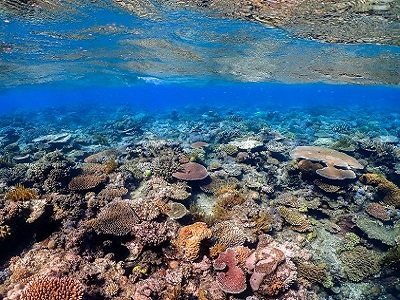
The largest coral reef system in the world stretching over 344,400 sq. km. It marks its name on the UNESCO World Heritage Site and the Seven Natural Wonders Of The World. The biggest structure is made by tiny living organisms. Also visible from outer space, this colossal structure is a must-visit site in Australia.
2. Sydney Opera House
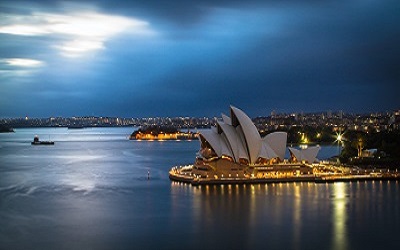
Located on the Sydney Harbour, it is a uniquely creative and distinct piece of work. This Opera House is regarded as a ‘Masterpiece of the 20th century’. It is considered under the UNESCO World Heritage Site, Australian National Heritage List and the New South Wales Heritage Register. It is also a performing arts venue with performances by renowned artists all over the globe.
3. Blue Mountains National Park
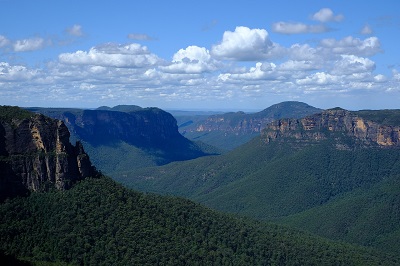
Declared a World Heritage Site by UNESCO, this beautiful National Park is famous for its 140 km of hiking trails. The blue haze created by the eucalyptus trees gives it the name of the Blue Mountains. Full of gorges, waterfalls and aboriginal rock paintings. The three sisters’ sandstone rock formation is a major attraction. Hiking, rappelling, rock climbing, mountain biking and horseback riding are popular.
4. King’s Park
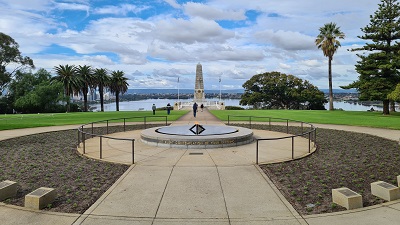
It is one of the largest urban parks in the world. It is also a Botanical Garden which has aerial walkways. And the State War Memorial is also there. The park houses May Drive Parkland, Lotterywest Family Area, Aboriginal Art Gallery, DNA Tower, Royal King’s Park Tennis Club, Walks and Jacob’s Ladder.
5. Uluru-Kata Tjuta National Park
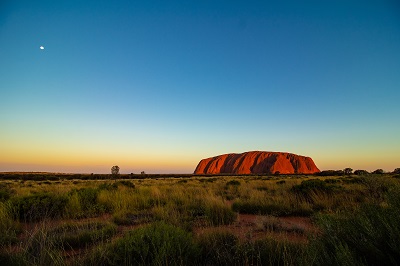
One of the most photographed destinations in Australia. Uluru or Ayers Rock is situated deep in the heart of “Red Centre” Australia. The sandstone monolith is the centrepiece of the National Park. This monolith is considered sacred by the indigenous Australians. It is a UNESCO World Heritage Site.
6. The Pinnacles
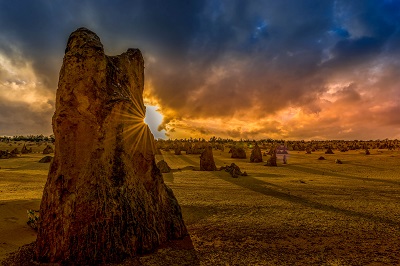
Located within the Nambung National Park. The Pinnacles are shaped like tombstones. These are weathered limestone formations. It is a desert area full of flora and fauna inclusive to that area. It is a hotspot for tourists, especially during Spring from August to October.
7. Sydney Harbour Bridge
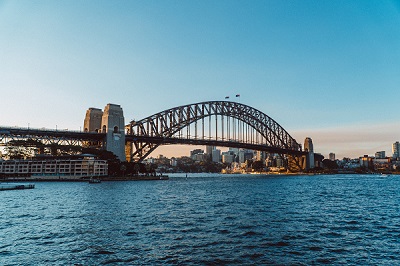
Also known as the “Coathanger” because of its arch shape. Made out of steel this bridge is used by railways, vehicles, bicycles and pedestrians. It is listed under the Australian National Heritage List, the New South Wales Heritage Register and the National Engineering Landmark. New Year’s Eve is celebrated here with full vigour and special fireworks are lit. People gather around to see the fireworks show on New Year’s Eve.
8. Art Gallery of New South Wales
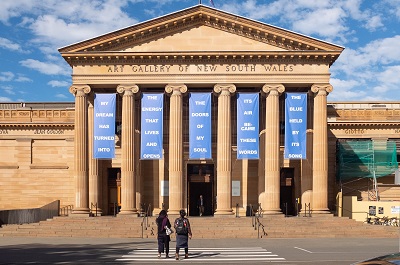
Also known as the New South Wales Academy of Art in 1872. And ‘The National Art Gallery of New South Wales from 1883 to 1958. It is one of the largest art galleries in Australia. Galleries of Australian art, Indigenous Australian art, European art and Asian Art are on display.
9. Lake Hillier
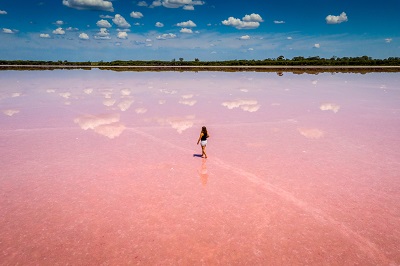
Situated on the Middle Island within the Recherche Archipelago Nature Reserve, it is a saline lake. It is one of the most popular destinations among tourists. Photographers throng this place to get that perfect photo for Instagram. Famous for its pink-coloured water. It is safe for humans to swim in.
10. Old Melbourne Gaol
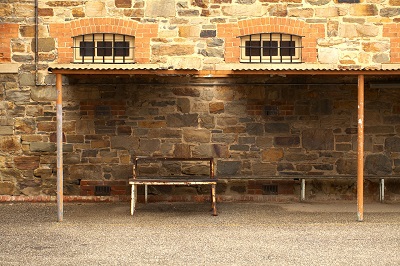
It is a former jail turned into a museum and the Royal Melbourne Institute of Technology University now. Death masks of the executed criminals, prisoner’s skulls and other belongings are put on display here. It is listed on the National Trust of Australia Heritage Register.
Takeaways
The world’s smallest continent and the largest island. Full of spectacular scenery, easygoing life, pleasant weather and breathtaking sceneries. Ancient rainforest, sand islands, vast and multicultural cities.
Some of the world’s most awe-inspiring natural wonders and aboriginal settlement remnants are worth seeing. One of the most unique destinations in the whole world.
Australia offers something for everyone of all ages. The Land Down Under is ready to be explored by you. The more non-touristy you look, the more you get things to do in Australia.
I think you might have already started planning for your trip to Australia. Just take a deep breath read this article until the end and satiate all your curiosities. We have answered all your possible queries.
FAQ’S =》
Q1. What is the best time to visit Australia?
Ans. The best time to visit Australia is in Spring and Autumn. March to May is the Autumn season. While September to November marks the Spring season.
Q2. What is the hottest month in Australia?
Ans. January is the hottest month in Australia.
Q3. Are there sharks in Australia?
Ans. Yes. There are many killer sharks lurking under the waters of Australia.
Q4. Is Australia expensive?
Ans. Yes. Australia is a very expensive country. Australia has one of the highest costs of living in the world.
Q5. Is tipping necessary in Australian restaurants?
Ans. No. Australia has one of the highest minimum wages in the world. Therefore you do not need to tip at restaurants.
Q6. Are Australians friendly?
Ans. Australians are very friendly. They talk to random people. And their conversations generally start with “Buddy” or “Mate”.
Q7. Is tap water drinkable in Australia?
Ans. Yes. The Australian Government claim their tap water to be 99% pure and safe for consumption.
Q8. Can you drink at 16 with parental consent in Australia?
Ans. Consuming alcohol below the age of 18 is legal in Australia. But with parental consent and also inside private property.
Q9. What kind of activities can you do in Australia?
Ans. Australia is famous for its water activities and sports. Scuba diving, Snorkeling, deep sea diving, kayaking, cruising, surfing, swimming etc. Trekking, cycling, climbing, helicopter riding, jeep riding and camping are also popular among tourists.
Q10. What is the most empty part of Australia?
Ans. Australia is mostly uninhabited as in nature-based. 95% of its population lives near the coastal regions which is roughly 5% of landmass.
Q 11. Is it safe to swim in Lake Hillier?
Yes, it is safe to swim in Lake Hillier in Australia.
Have a nice trip to Australia!
